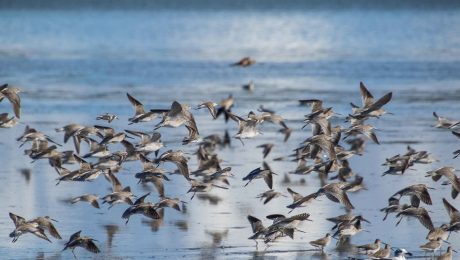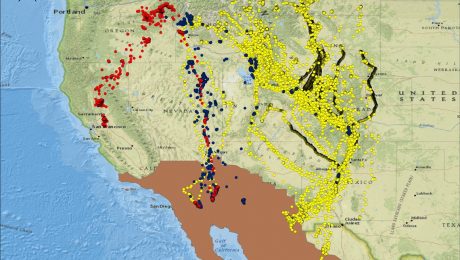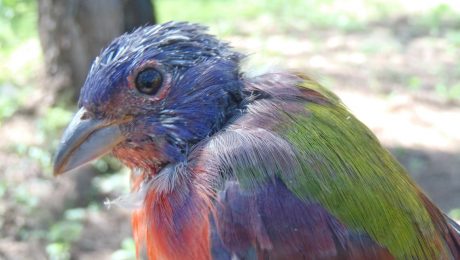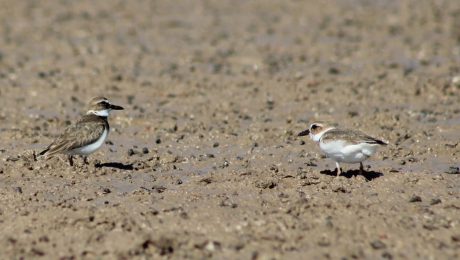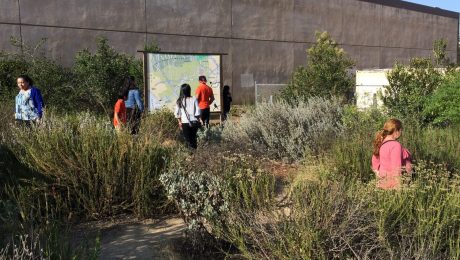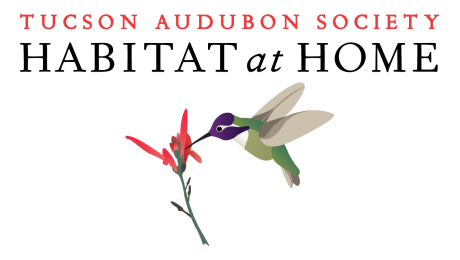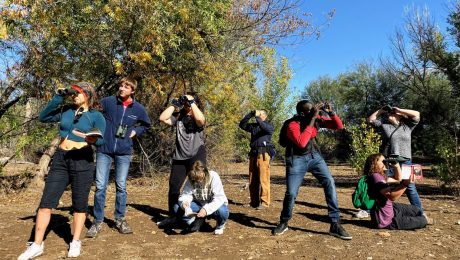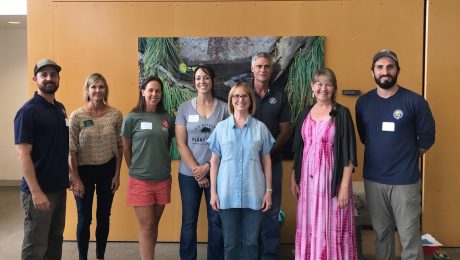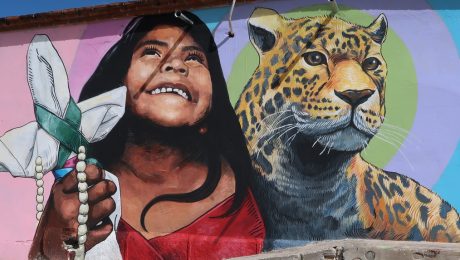A Red Knot’s Journey to Mexico’s Coastal Wetlands
Every year, an incredible journey binds the Arctic with the Sonoran Desert coasts 6,000 km away, where a network of beaches, estuaries, and wetlands provides some of the most important stopover and non-breeding habitat for migratory birds.
- Published in News
Supporting Cranes in the Arid Southwest
The Sonoran Joint Venture states of Arizona, California, Sonora, and Chihuahua are the second-most important geography for Western Greater Sandhill Cranes.
- Published in News
Molt Migration in the SJV Region
Until recently, the importance of stopover areas for molting birds has gotten little attention. The diverse habitat and seasonal food sources found in the SJV region make it invaluable for birds from throughout the continent to molt.
- Published in News
Fellow Travelers of Estero La Cruz
Birds arrive on their migratory journeys to Estero La Cruz in different time windows, creating a succession of diversity throughout the season.
- Published in News
A Little Habitat Goes a Long Way
The SoCal Urban Wildlife Refuge Partnership inspires a new generation of conservation stewards by bringing nature to people.
- Published in News
Creating Habitats at Home with Tucson Audubon Society
Help support birds and other wildlife through beautiful, water-saving, “naturescaping” with Habitat at Home, and create a yard that is a part of something bigger.
- Published in News
Birding as a Tool for Youth Environmental Stewardship
Birding in the urban environment makes nature accessible to youth in a way that allows them to appreciate the uniqueness of their community. It can also empower young people to advocate for nature and inspire others to do the same.
- Published in News
Arizona’s Urban Forests and Their Importance to Wildlife
As urban forests become more important to wildlife, potential for human-wildlife conflict can increase. The Tree Care for Birds and Other Wildlife Program was established to help reduce impacts to wildlife that can occur during tree maintenance.
- Published in News
Día del Jaguar: Celebrating Nature, Culture and Jaguars in Sonora
The jaguar is vital to its habitat in Sonora, Mexico. Conservation nonprofit Nature and Culture International and the local communities meet to discuss and get to know this majestic species with Día del Jaguar, a two-day festival celebrating jaguars and other endangered wildlife in the region.
- Published in Meetings and Events, News
Celebrating Tucson’s Unique Birds and Wildlife
The 10th annual Southeast Arizona Birding Festival will take place August 5-9, 2020 and is a celebration of our region’s exceptional birds and wildlife that come to new life during the monsoon season.
- Published in Meetings and Events, News


 English
English  Español
Español 